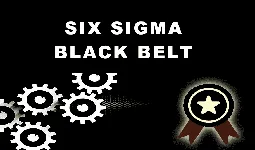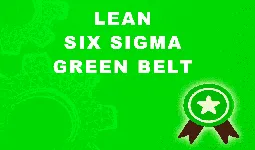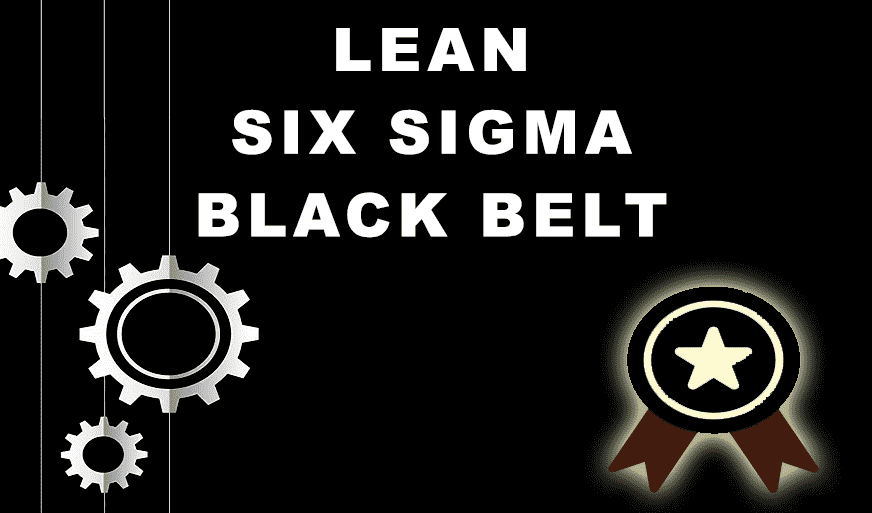Operation Manager Interview Questions and Answers
-
 By Nandini
By Nandini - Published on Mar 13 2023

Introduction
At that point, plan well for the prospective employee meeting. An operations manager's work is a senior job that includes directing the creation of merchandise and/or the arrangement of administrations.
It's to ensure an association is also running as well as it can, with smooth, effective help that meets the assumptions and requirements of clients and customers. The operation manager's responsibilities include supply chain management, delivery management, product design, and forecasting, which are essential to performing various strategic roles.
There are numerous positions identified with the operations manager; a portion of its models are the organizing operations manager, bank operations manager, branch manager, business operations manager, manager of deals, retail administrator, manager, associate manager, operations chief, senior supervisor, and city dispatch manager on astuteness occupations.
Kindly view our Operations Manager Interview Questions and Answers page to secure the correct position.
List of Top 35 Operations Manager Interview Questions and Answers
List of Top 35 Operations Manager Interview Questions and Answers
1) Disclose to me a portion of the undertakings you've handled day by day as an operations manager.

The undertakings are various, so give a couple of explicit models, for instance: preparing financial plans for programs; masterminding offices and guaranteeing composed development from one site to another; maintaining stock control and coordination; being a representative's administrator; leading prospective employee meetings; and so forth.
2) What abilities do you think are urgently needed for accomplishment in this position?
Some conspicuous models incorporate fast picking up and thinking, critical thinking spryness, initiative, and relational abilities. Portray how you truly know about these. For instance: You've utilized your relational abilities and administration capacities to oversee changes and manage all degrees of the workforce.
You can discuss your work abilities for educating and conveying messages clearly at all levels of the association, from sub-workers for hire to senior administration.
3) How may an operations manager be engaged with singular workers?
The operations manager's extension is wide. However, s/he manages office guidelines, order, and limited scope clashes too. It is regularly the operations manager's job to mollify private matters or complaints by being mindful and successfully discussing them with singular representatives.
4) What experience do you have with introductions?
Operations managers are needed to impart information adequately inside and outside the association. They regularly address organizations in gatherings and gatherings since they are exceptionally able to introduce the subtleties of development and development, plans and prospects, and examine any current activities.
5) What do you think about overseeing spending plans?
Operations managers are commonly associated with budgeting and planning. They will probably figure out what amount has been effectively spent, how much will be spent, and how to spend the leftover financial plan in order to gain important assets within spending limits. Operations managers might even be engaged with monetary issues like credits for the organization. Coming up next are some significant abilities and capacities needed by operations managers in handling issue representatives:
The solidarity to manage the circumstance in an immediate way when it is figured out is always the solution; overlooking an issue is never the solution.
The capacity to isolate individual sentiments from the practices there might be a shared aversion between you and the difficult worker. However, the spotlight ought to consistently stay on the representative's conduct as it identifies with accomplishing the objectives of the organization. The capacity to completely examine the circumstance and not depend on tattle and prattle. The work is to plainly impart and give explicit criticism to this worker on what his conduct means for others by giving explicit models.
The desire to attempt to mentor the representative in showing more suitable practices. The attention to the significance of effectively archiving circumstances in the representative's record and talking with HR is vital. The understanding of when the end might be fitting and how to finish inside the law.
6) How to make decisions and solve problems?

By investigating data and assessing results to pick the best arrangement and take care of issues. By creating helpful and agreeable working associations with others and keeping up with them after some time.
7) How do I evaluate information to determine compliance with standards?
By utilizing important data and individual judgment to decide if occasions or cycles agree with laws, guidelines, or standards.
8) What is the process of getting information?

Noticing, accepting, and in any case acquiring data from every single pertinent source.
9) What are some skills that you bring to the table as an operations manager?
A couple of the required abilities in operations are magnificent relational abilities, administration abilities, critical thinking capacity, and snappy getting the hang of/thinking. Instead of shouting key expressions that you think individuals need to hear, make these applicable to your experience. One model may be that you oversaw changes and conveyed said changes to all levels of the workforce utilizing your relational abilities and administration capacities.
10) What do you know about managing budgets?
Operations managers are regularly associated with budgeting and planning. They will probably figure out what amount has been effectively spent, how much will be spent, and how to spend the excess financial plan to procure vital assets within spending limits. Operations managers might even be engaged with monetary issues like credits for the organization.
11) What do you consider to be the most challenging thing about being an operations manager?
The manager interview questions are a decent guide to what's in store in the manager or administrator prospective employee meeting. Planning and certainty will distinguish you as the best candidate for the job.
12) What steps did you take to establish rapport with a new staff member?
Show how you impart data successfully to an individual or gathering, changing your methodology as indicated by the circumstance. Incorporate your capacity to see the other individual's viewpoint and build up a productive relationship.
13) What methods did you use to prioritize work assignments?
Demonstrate your capacity to build up destinations, set needs, plan the legitimate task of undertakings, assign assets successfully, utilize proper authoritative instruments, and circle back to work status.
14) Portray a time you had to provide training or coaching to different staff members on the same tasks.
Show how you have encouraged the advancement of information and abilities, how you change your methodology as per the individual, and how you offer help where required. Examine how you can survey the necessities of your staff, set up an arrangement for development considering accessible assets and the individual prerequisites, and gain consent to this arrangement.
15) What is your administration style?
This will undoubtedly come up in the arrangement of interview questions coming your way. The most fitting answer offers an expansive degree as opposed to a particular answer.
For instance, you may clarify that your administration style is dynamic since you adjust to the venture at hand and the objectives of the organization while continually remaining consistent with certain center standards, including regard, scholarly genuineness, and polished skill.
At that point, share your proudest moments as a manager that represent your style in real life. Be just about as explicit as could be expected and put forth a valiant effort to incorporate a few measurements that hotshot the achievement of your endeavors.
16) How would you uphold a representative who isn't meeting assumptions?
While it's imperative to have a genuine model on hand for all interview questions, it's particularly important here to show your capacity to take remedial measures on an individual level. Interviewers pose this inquiry to decide how you will function with an immediate report to manage them back onto the path of progress.
They will search for techniques, such as giving clear input to a worker, and then together build up an activity plan that supports meeting future execution objectives.
17) Give an illustration of how you've needed to give negative input. What was your methodology?
While this inquiry includes an immediate report, there are numerous different circumstances where you'll have to have your analysis viewed appropriately.
You'll master your reaction on the off chance that you can create a positive illustration of how you followed the prescribed procedures while conveying useful criticism. Interviewers search for three essential things in your answer:
- Regardless of whether you keep your input explicit or general
- In the event that you convey your input expeditiously or hang tight for a presentation audit
- Regardless of whether you urge the worker to work close by, you should make an activity plan that will redress the deficiencies.
- In your reaction, portray a circumstance from your own insight, clarifying your strategy for conveying input, particularly on the off chance that you follow a particular equation for productive analysis.
You may clarify that your administration style is dynamic since you adjust to the undertaking at hand and the objectives of the organization while continually remaining consistent with certain center standards, including regard, scholarly genuineness, and polished methodology.
18) Do you believe yourself to be a coordinated individual?
This isn't an inquiry as to whether you are a slick and clean individual. Or maybe interviewers incorporate this inquiry among their ordinary interview questions to perceive how you focus on your time and which apparatuses you use to help you end your route.
Stroll through your normal manager's workday with your interviewer, venturing through your detailed day-by-day schedule while clarifying how unexpected conditions are handled before things go wild.
Accentuating your capacity to perform multiple tasks and rotate between changing needs is also a decent touch.Use models that boost your adaptability. You can share your particular techniques, for instance, as well as how you change your methodology depending on the circumstances at hand.
19) How might your associates portray you? How might your immediate reports portray your administration style?
These two or three precarious manager interview questions do come up frequently in these sorts of interviews. They're intended to perceive how well you identify with your friends, just as they do with the individuals who work for you.
Your answer is an incredible chance to talk about your qualities. In a perfect world, talk about the attributes that make you a fantastic manager.
Try to achieve this without sounding staggeringly great or self-important. On the off chance that you can, utilize positive yet true statements that you've been given firsthand (for example, in a presentation assessment or a LinkedIn underwriting) or praises that have been handed off to you by others.
In the event that you don't have direct statements to share, it's alright to talk narratively if you can back up your models with a model or two.
20) When delegating a recent assignment, how did you show your confidence in the person's ability to do the job?
Show how you allocate errands and obligations to the proper individuals, how you explain precisely what is normal, impart certainty, and guarantee sufficient assets are accessible for the fruitful completion of the assignment. Incorporate follow-up methodology and set cut-off times.
21) Portray a problem you recently experienced with an employee who reported to you. How did you solve it?
Show how you can survey the pertinent realities, think about other options, and settle on the most appropriate activity. Examine how you think about accessible assets and any potential imperatives.
22) How do you motivate your staff?
During this last year in my present position, the organization was encountering an issue with non-appearance, and an enormous task was bogged down.
I concluded that instead of indiscriminately endeavoring to toss arrangements out there, I should initially discover what the issue truly was: I asked the workers for what reason it appeared assurance was low and people were taking off additional time than expected.
I discovered that a great deal of the specialists felt separated from the organization. We had developed a lot in a brief timeframe, and the central gathering that had been with us from the start had appreciated a genuine family environment during the early years.
23) In what aspects of your previous management roles have you excelled?
It isn't sufficient just to make reference to the fact that you were liable for a specific errand, and bosses need to realize that you dominated at it.
It is likewise insufficient to simply discuss your significant subject matters, and you will need to share instances of overcoming adversity from your work insights.
24) How would your subordinates describe your management style?
The ideal answer would include an illustration of how you have worked with a group to figure out how to tackle an issue.
Model:
I accept that my group would say I regard their gifts and give open correspondence and clear headings, while additionally permitting them enough space to complete their work without consistent registration. I have a personal stake in understanding what propels every individual to do their best work.
For instance, my organization was chipping away at changing a promotional effort for a major customer who was discontent with the underlying pitch meeting.
25) What experience do you have with presentations?
Operations managers are needed to impart knowledge successfully inside and outside the association. They regularly address organizations in gatherings and gatherings since they are profoundly able to introduce the subtleties of development and development, plans and prospects, and talk about any current ventures.
26) How should an operations manager be involved with individual employees?
The operations manager's degree is wide, yet he or she manages office guidelines, control, and a limited scope that clashes with that as well. It is frequently the operations manager's part to ease private matters or complaints by being mindful and discussing them adequately with singular representatives.
27) What skills do you consider crucial for success in this position?
Some undeniable models incorporate brisk picking up and thinking, critical thinking spryness, authority, and relational abilities. Portray how you truly know about these.
For instance
You have utilized your relational abilities and initiative capacities to oversee changes and manage all degrees of faculty.
28) What are the tasks you have handled daily as an operations manager?
The errands are various, so give a couple of explicit models.
Model:
Planning spending plans for programs, organizing offices and guaranteeing composed development from one site to another, maintaining stock control and coordination, being a representatives' administrator, leading prospective employee meetings, and so on.
29) How does an operations manager respond?
Operations managers are screened by the various divisions inside an organization or by various organizations and associations. They are exceptionally prepared, profoundly qualified experts with extraordinary and complex obligations.
Operations managers plan strategies, plan human and specialized assets, and oversee everyday undertakings. They are engaged with practically all parts of the organization's operations without a moment's delay; however, their general objective is to give and support the best strategies for operations.
30) What is the aim of the Operations Manager?
An operations manager's point is to guarantee that the association is running as easily and proficiently as could really be expected and that the merchandise and/or administrations delivered meet customer or client needs.
31) What is your dynamic cycle?
Bosses need to have the option to believe how you'll settle on choices for them. While they may have inner cycles to assist with this, there will, in any case, be times when you'll be all alone. Start with a diagram of your cycle.
You may begin with an overall assertion, for example, "I accumulate all the accessible data to me, investigate the choices, and focus on results dependent on the undertaking and friends' objectives and destinations." Then, proceed with a particular illustration of a business-basic, dynamic circumstance you explored.
32) Portray your cycle for designating undertakings to your group.
It is one of the most commonly accepted interview questions, and, as a boss, people want to be given a project to do a certain amount of work by their new superiors. In countries that operate well as long as they have an individualistic democracy, managers have been found to be more profitable and to do better than their classes.
It is able to explain how singular peers would do it if this was expected of them. In the event that you have performed your own customary sector activities, you have discovered this knowledge. To make it easier for errands to be spread fairly, explain how you'll deal with the data and how you can use it to operate.
Leave out unnecessary details and show your work here how you addressed a similar issue with specific (and effective) business (to-derived) models for task management, then present your idea with your proposal.
33) How might you handle a task that was running over a spending plan?
We have to be direct and honest: The terms of the financial proposals proposed earlier weren't palatable to anyone. I am trying to study your reaction to pressure in order to be able to do this: including, among other things, your coping skills.
In the interview, your interviewer may want to know how you handle issues that are important to you and how sensitive the tasks are that you work on so that they can get a handle on the whole process of monitoring and insufficiency.
To provide information from your own experience would allow your response to further illustrate the concept, provide an example from your life that you're intimately familiar with. Rather, offer a model that shows how your plans for the venture were successful and did not meet their financial demands. Ideally, mission and schedule factors can all be taken into account.
Go with a model that explains how to foresee financial problems and keep them on track with the expected investment. Holding out the remote possibility of there being a model that would not fit shows how you would react if things got worse.
34) How would you keep your group spurred?
This is perhaps the most well-known interview question. As a pioneer, your group looks to you to set the pace of assurance and inspiration. Interviewers look for the following in your answer:
- A portrayal of your correspondence style
- Instances of explicit things you do to engage your representatives
- A clarification of how you set aside some effort to become acquainted with your representatives (so you understand what persuades them on an individual level)
In your answer, give explicit instances of ways that you gave uplifting feedback to your group, urged them to step up to the plate, and saw every individual's qualities. Likewise, take care to clarify how you've shown acknowledgement to representatives who meet or surpass assumptions.
Top Quality Management Training Courses and Six Sigma Certifications
We, Sprintzeal, are an accredited training partner of the International Association for Six Sigma Certifications (IASSC). To learn about six sigma certifications and to find the six sigma course that fits your career goals, chat with our course expert.
Subscribe to our Newsletters
Popular Programs
Trending Posts
Overcoming Common Challenges in ISO 9001 Certification: Tips and Best Practices
Last updated on Sep 9 2024
Top 10 Lean Manufacturing Tools for Optimal Productivity
Last updated on Jan 15 2024
Key Elements of ISO 9001:2015 Quality Management System
Last updated on Sep 3 2024
Pareto Chart in Six Sigma - Explained
Last updated on Mar 24 2025
Lean Six Sigma on Resume for Rewarding Career Benefits
Last updated on Nov 20 2023
Who Needs ISO 9001 Certification and Why?
Last updated on Aug 29 2024
Categories
- Agile Management 54
- AI and Machine Learning 42
- Big Data 53
- Business Management 51
- Cloud Computing 44
- Digital Marketing 56
- Information Security 8
- IT Hardware and Networking 17
- IT Security 103
- IT Service Management 29
- Leadership and Management 1
- Microsoft Program 2
- Other 43
- Programming Language 31
- Project Management 162
- Quality Management 75
- Risk Management 8
- Workplace Skill Building 2
Trending Now
Top Career benefits of Lean Six Sigma Green Belt
ArticleLean methodology, Six Sigma methodology and Lean Six Sigma Explained
ArticleSix Sigma Black Belt Certification – Value and Career Benefits in 2024
ArticlePareto Chart in Six Sigma - Explained
ArticleQuality Management Interview Questions 2024
ArticleSix Sigma Certification Guide - A Professional's Guide
ArticleSix Sigma Yellow Belt Certification - Six Sigma for Beginners
ArticleQuality Control Explained – Six Sigma
ArticleTotal Quality Management - A Complete Guide for Beginners
ArticleQuality Assurance in Six Sigma Explained
ArticleQuality Assurance vs Quality Control
ArticleSix Sigma Certification – Everything you Need to Know About Getting Certified
ArticleLean Six Sigma on Resume for Rewarding Career Benefits
ArticleQuality Manager Interview Questions and Answers for 2025
ebookService Delivery Manager Interview Questions and Answers (With Examples)
ArticleSix Sigma Interview Questions and Answers 2024
ArticleHow to become a Quality Analyst
ArticleA Supply Chain Management Guide to Mastering Logistics End to End
ArticleSenior Quality Manager Interview Questions and Answers 2024
ArticleTop 30 Quality Analyst Interview Questions and Answers 2025
ArticleFinancial Analyst Interview Questions and Answers 2024
ArticleRisk Manager Interview Questions and Answers 2024
ArticleCompliance Manager Interview Questions and Answers 2024
Article5 Lean Continuous Improvement Principles to Supercharge Your Operations
ArticleHow to Become a Quality Manager - Career, Job Scope and Certifications
ArticleEssential Components of a Quality Management System
ArticleSix Sigma Certifications - Reasons Why you Should Get Them
ArticleTop Qualities of a Good Manager and a Leader
ArticleLearn about Statistical Process Control (SPC) and its top applications
ArticleCost of Poor Quality - A Detailed Guide
ArticleImplementing 5S Methodology for Better Work Efficiency
ArticleWhat Is Lean Management?
ArticleBest Six Sigma Books in 2024
ArticleLeadership vs Management - The Ultimate Guide
ArticleQuality Assurance Plan - Six Steps To Quality Assurance Plan
ArticleOperational Planning Creation, Key Elements and its Benefits
ArticleA Complete Guide to Product Life Cycle Stages 2025
ArticleSix Sigma tools for DMAIC Phases
ArticleWhat Is Lean Manufacturing?- An Overview
ArticleThe Lean Continuous Improvement Model: A Comprehensive Guide
ArticleDMAIC vs. DMADV: Key Differences and Choosing the Right Six Sigma Methodology
ArticleA Deep Dive into the Power of Lean Continuous Improvement Process
ArticleLean Continuous Improvement Methods for Business Excellence
ArticleIntroduction to Lean Manufacturing- Definitions, Framework, and More
ArticleUnderstanding the Key Principles of Lean Manufacturing
ArticleSecret to Unlock Organizational Excellence: Stages of Continuous Improvement
ArticleLean Continuous Improvement: A Detailed Guide to Mastering Organizational Quality
ArticleLean Waste Management: The Ultimate Guide 2023
ArticleA Deep Dive into Lean Continuous Improvement Tools
Article8 Wastes of Lean - Strategies for Identification and Elimination
ArticleThe Ultimate Guide to Lean Manufacturing
ArticleUnderstanding Lean Manufacturing's Pros and Cons
ArticleLean Waste Reduction Strategies: Boost Efficiency and Cut Costs
ArticleTop 10 Lean Manufacturing Tools for Optimal Productivity
ArticleBeyond the Basics: Benefits of Lean Continuous Improvement
ArticleWhat are Quality Standards? | A Guide to ISO Standards
Article7 Important Types of Quality Management System
ArticleA Comprehensive Guide to Quality Management Systems
ArticleISO 9001 Standard: Benefits and Certification
ArticleBenefits of QMS Certification for Your Business
ArticleStep-by-Step Implementation Guide to ISO 9001
ArticleThe Ultimate Guide to ISO 9001: Boosting Quality and Certification Success
ArticleQuality Management System – QSM Approaches and Methodologies
ArticleHow to Effectively Implement a Robust Quality Management System?
ArticleExplaining QMS Documentation Structure: Benefits and Best Practices
ArticleWho Needs ISO 9001 Certification and Why?
ArticleKey Elements of ISO 9001:2015 Quality Management System
ArticleOvercoming Common Challenges in ISO 9001 Certification: Tips and Best Practices
ArticleBest Quality Management Tools
ArticleTotal Quality Management (TQM) vs. Six Sigma
ArticleQuality Manager Salary: What Freshers & Experts Earn in 2025
ArticleCertified Scrum Product Owner: Job Roles And Responsibilities
ArticleTips for Continuous Integration Testing: Streamlining QA
Article10 Quality Management Strategies Adopted by Top Managers
Article

















